Holding court outside a craft beer bar on a recent early evening in Aberdeen, Rob has a firm idea over how much a pint should cost.
“Six is pushing it,” says the Welshman, nodding at the cloudy-looking beer in his hand, which work colleague Ashish just paid – not coincidentally – £6 for.
“I would never pay seven,” chimes in Ashish from across the table. The researcher – in Aberdeen for a conference the next day – later adds that when it comes to the price of drinks “it feels like we at the upper limit already”.
Ashish and Rob’s discomfort is well-founded.
As the country battles an energy crisis, a single pint of draught lager in the UK now costs a record high average of £4.09, according to the Office of National Statistics.
But, as energy costs continue to soar there will be tremendous pressure on the pub trade to raise prices even higher. The question is, how much more can customers take?
“How far can you push it?” asks Lawrie Wotherspoon, Black Isle Brewery’s business development manager. “Our electricity costs have jumped by 170%. People don’t want to pay 170% more for a pint.”
Lawrie’s rule of thumb is that people don’t like to pay more than £5 for a pint.
“For customers, if you have a tenner, you want to get two pints out of it,” he says. “There is a funny psychological thing with that.”
“People don’t mind when it’s below a fiver,” agrees Craig Macleod, owner of traditional Inverness pub Innes Bar. “But once it starts getting near that… well.”
£20 a pint to cover skyrocketing costs
Both publicans have confidence they can ride out the current storm. At Black Isle, which produces its own organic beer at a brewery across the Kessock Bridge, Lawrie points to the leeway he gets from selling premium products.
Meanwhile, Craig has faith in his regulars – and the events he puts on at his pub, including the pub quiz he hosts every Sunday evening.
But they are concerned for an industry that could face a torrent of closures this winter because of skyrocketing energy bills, especially if the government fails to step in with emergency relief.
The Campaign for Real Ale, a group that supports traditional pubs, said this week that if publicans want to cover soaring costs, a pint of beer needs to cost between £15 to £20.
“I do expect [the industry] to be decimated, to be honest,” says Craig, who has seen the Innes’ energy costs jump from £800 a month to £2,000 even though the bar is on a tied-in contract that protects it from higher increases.
Other pubs have faced energy bill hikes of up to 400%. To compound matters, Craig has been notified of two further price increases from the breweries he buys his beer from.
“There’s so many pubs now that are closing early,” Craig adds. “They just don’t open at the start of the week because they’re very quiet.”
Phil Adams, co-owner of The Adams bar in Aberdeen puts it as bluntly: “Unless the government steps in, there are going to be huge amounts of casualties.”
Pubs close as reality bites
Some venues are already falling by the wayside.
BrewDog, the Ellon-based brewery and pub chain, is to close six bars around the UK – including one in Peterhead and one in Aberdeen – because of “spiralling” energy bills and other rising costs.
“Reality in the hospitality space is starting to bite and bite hard,” BrewDog co-founder James Watt wrote in a LinkedIn post last week.
Also last week, Inverness bar Rose Street Foundry confirmed it will close its doors because of rising costs.
“It’s quite clearly tight,” says Lawrie, who notes that Rose Street owners Cairngorm Brewery had the same self-brew model as Black Isle does. “They, unfortunately, haven’t been able to make it work.”
Putting a price on non-beer attractions
As the price of beer rises, publicans are banking on other attractions to entice customers.
At Camps Bar in Wick, owner Callum Reid has regular nights of live traditional Scottish folk music for locals and tourists. On Thursday next week (September 15), the keen drummer is on stage himself accompanying Fife accordionist Alan Small.
“Tourism in our area is a major boost with the North Coast 500, and most definitely live music to encourage people in,” he says.
But he is pessimistic about the possibility of raising beer prices further.
“Customers will do what they were doing during the pandemic,” he says. “Drink supermarket alcohol in the house.”
Moving beyond the £5 price barrier on a pint of beer
One thing the recent inflation has underlined, however, is that psychological price barriers can be broken. Petrol prices that were once thought of as astronomical are now commonplace.
And because of contactless payment in pubs, punters may not even notice what they’re paying.
“Most of the transactions are now our card,” says Phil Adams. “And people are certainly willing to pay more if they want the premium product.”
“People are still coming out, and people are still supporting pubs,” says Black Isle’s Lawrie. “There’s a real appetite in Inverness for quality produce.”
Then there are the pub-goers willing to pay any price for a pint.
“It’s not that they have the money,” says Craig at the Innes. “They just know what it is, and that’s it.”
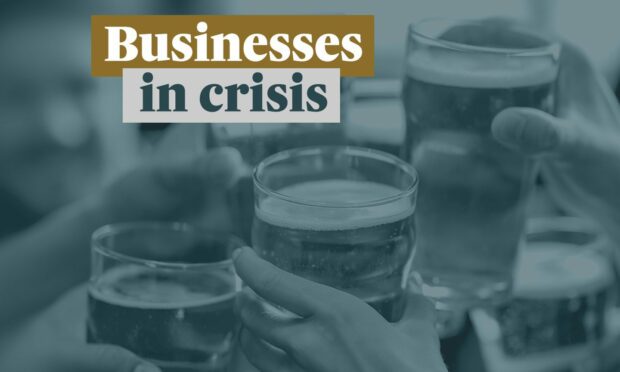
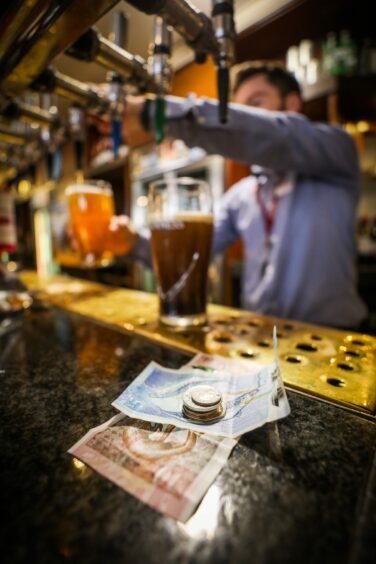
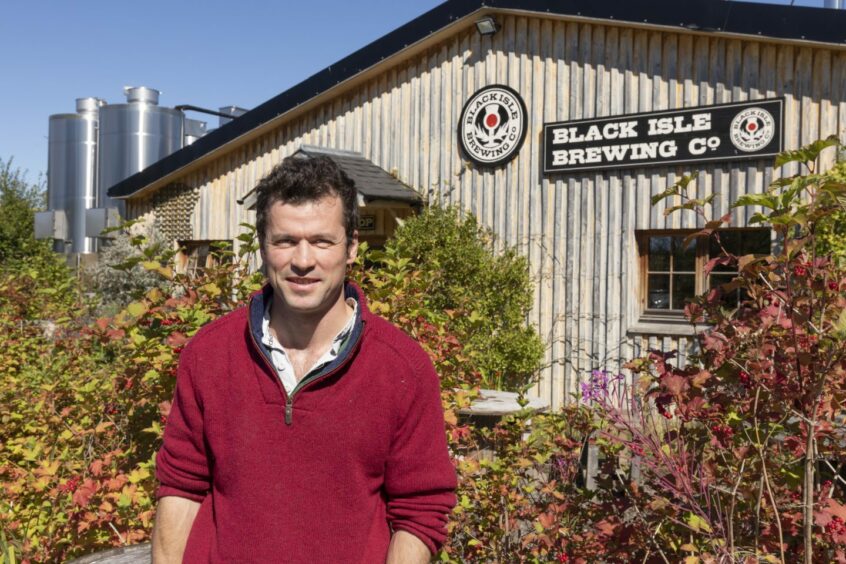
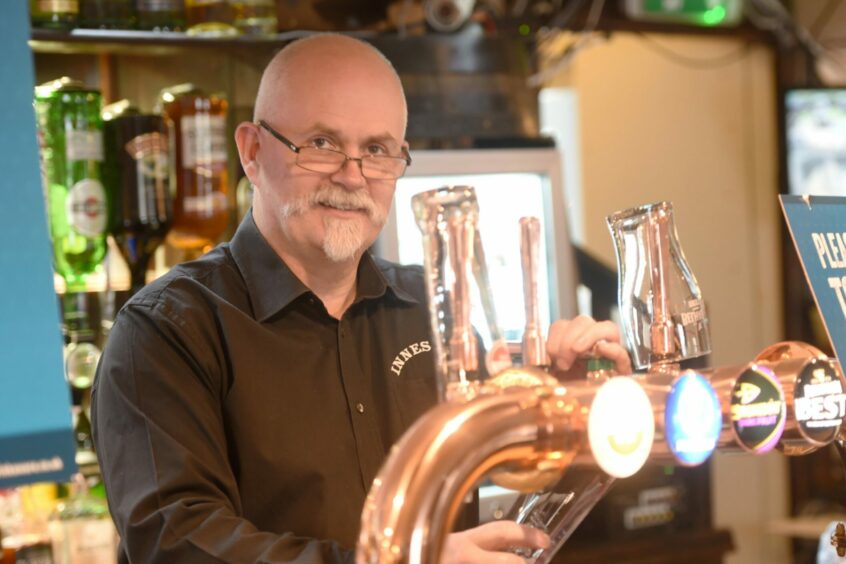
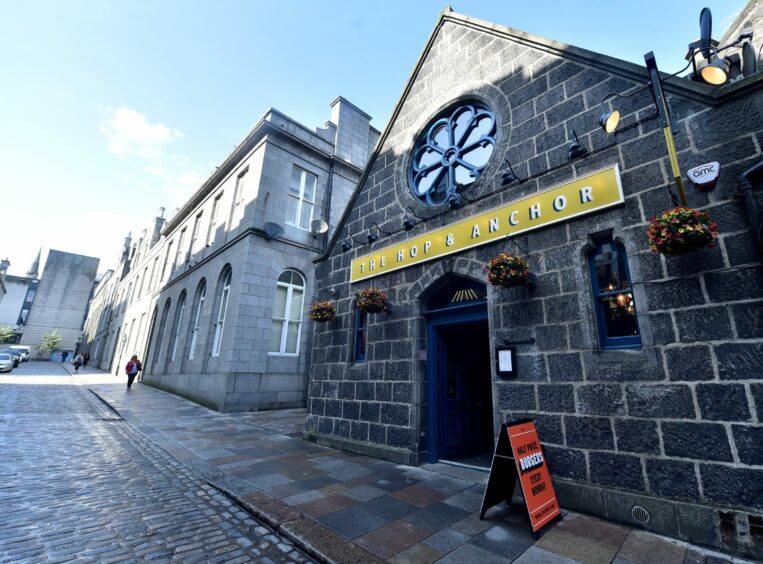
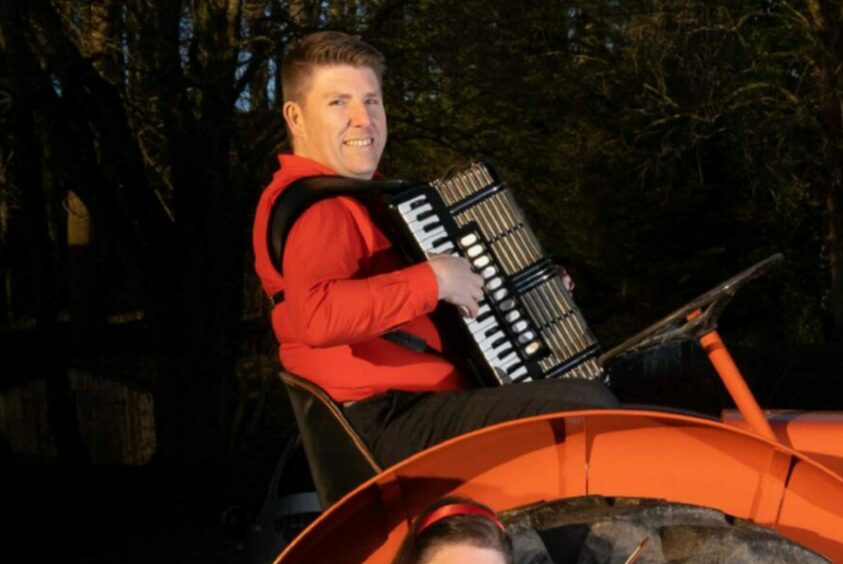
Conversation